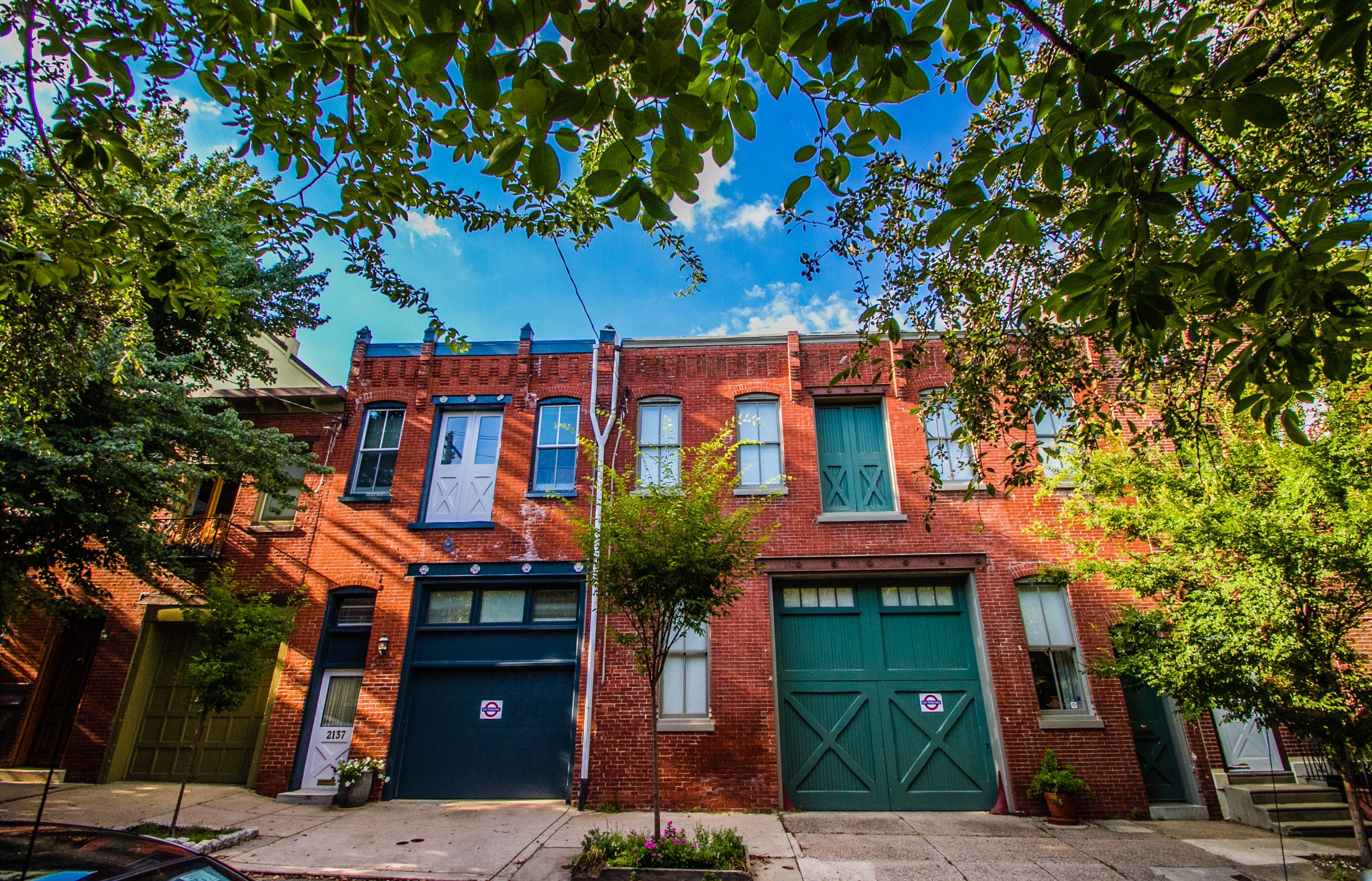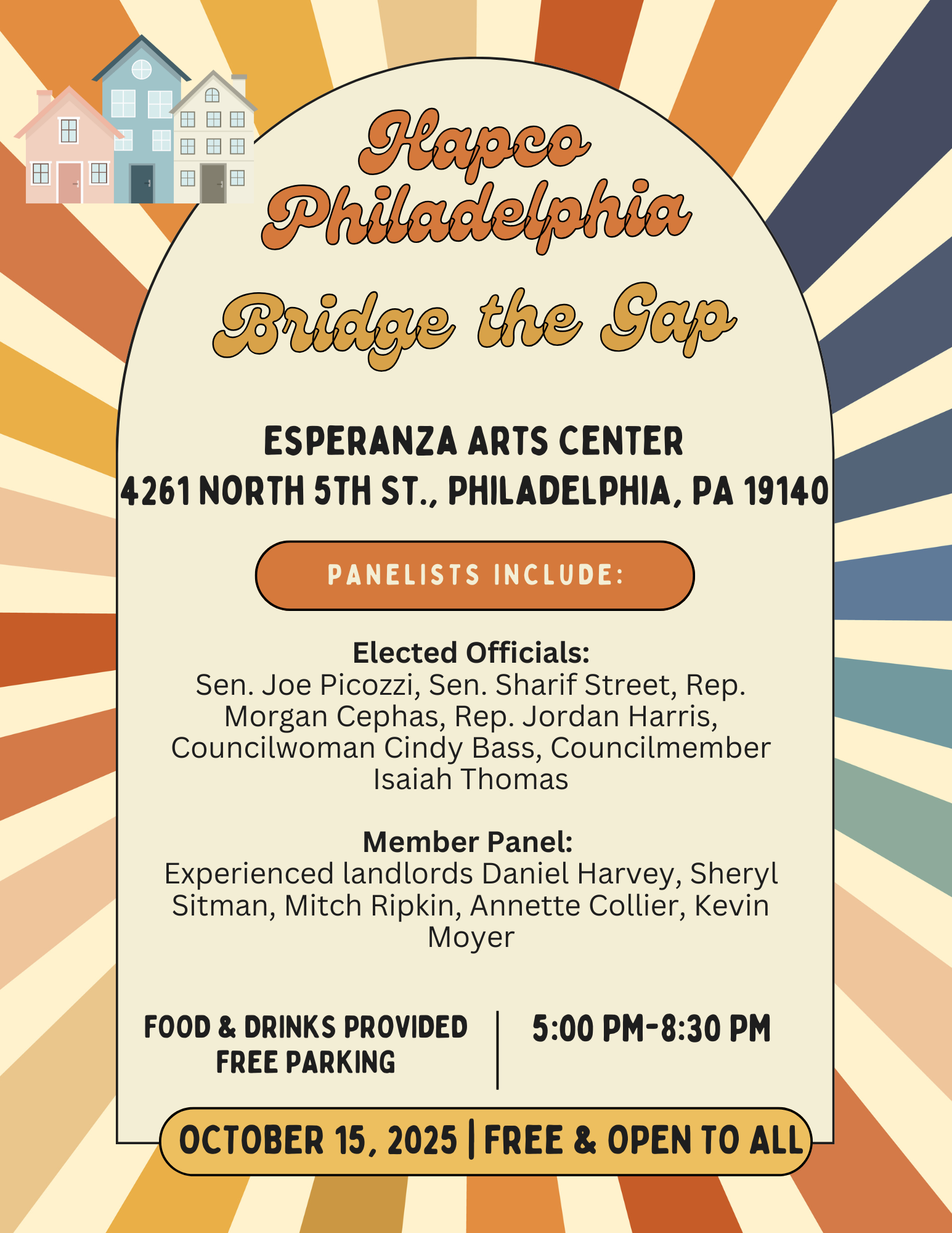Rocky Start for Market Street East Reinvention
A new partnership between Comcast and Philadelphia 76ers plans to demolish buildings on the 1000-block of Market Street despite no immediate reconstruction plans, drawing criticism over lack of transparency and risk of creating more vacant lots
Corporate Investors Buying One in Four Philadelphia Homes
A recent study finds that corporate buyers accounted for about 25% of all one- to four-unit home sales in Philadelphia between 2017 and 2022—raising concerns about competition with individual homebuyers, higher eviction rates, and community impact.
Important Updates for Philadelphia Landlords: Philadelphia Security Deposit Addendum
Starting December 3rd, all Philadelphia leases where the landlord collects more than one month’s rent as a security deposit should include the Philadelphia Security Deposit Addendum. Make sure your leases are updated to include this addendum.
Partners in Good Housing Brochure
The Partners in Good Housing Brochure will soon be updated to include voter registration information. Once the new brochure is available, all landlords will need to use it with tenants.
Leases for Properties Outside Philadelphia
Plaintiffs outside of Philadelphia have been forum shopping for personal injury cases. Even if the property is located outside Philadelphia, if the landlord has any nexus to the city, plaintiffs may bring the case in Philadelphia in hopes of a larger jury verdict. To help prevent this, landlords outside of Philadelphia should consider including the following clause in all leases:
Venue-Selection: Both parties agree that any and all future lawsuits initiated by either the Resident or Owner, including those involving claims of negligence, must be filed in the county where the property is located.
PHILADELPHIA SECURITY DEPOSIT ADDENDUM
Bridge the Gap 2025 – This Wednesday, October 15th!
Bridge the Gap 2025 – This Wednesday!
Don’t miss Hapco Philadelphia’s Bridge the Gap 2025, where city and state officials will have an honest conversation with a panel of experienced landlords about the housing issues facing Philadelphia.
📅 Wednesday, October 15 | 5:00–8:30 PM
📍 Esperanza Arts Center, 4261 N 5th St, Philadelphia, PA
✅ Free parking (see map below) | 🍴 Food & drinks | 🌟 Free & open to all
Featuring:
- Elected Officials: Sen. Joe Picozzi, Sen. Sharif Street, Rep. Morgan Cephas, Rep. Jordan Harris, Councilwoman Cindy Bass, Councilmember Isaiah Thomas
- Member Panel: Experienced landlords Daniel Harvey, Sheryl Sitman, Mitch Ripkin, Annette Collier, Kevin Moyer
Event Schedule:
5:00–6:00 PM – Networking
Arrive, mingle, enjoy food, and visit vendor tables.
6:00–8:45 PM – Panel Discussions
City and state officials join our member panel for an honest conversation about housing issues in Philadelphia, followed by audience Q&A.
8:45 PM – Closing Remarks
Engage, ask questions, and make your voice heard! See you there!

GPAR Coffee Talk with Paul Cohen, Esq. — Nov 4, 2025
Hapco members — mark your calendars! GPAR is hosting a Coffee Talk event featuring Paul Cohen, Esq., one of the top authorities in real estate and landlord-tenant law in the country.
What is GPAR?
GPAR (Greater Philadelphia Association of REALTORS®) is a membership trade organization for licensed real estate professionals and industry-related service providers in the Greater Philadelphia area.
Some of GPAR’s core roles include:
- Providing business tools, real estate market data, education, and resources for its members
- Offering legislative advocacy and representing REALTOR® interests at City Hall and in Harrisburg
- Upholding professional and ethical standards and offering dispute resolution services
This Coffee Talk is being hosted by GPAR — not Hapco — but the topic will be especially relevant for Hapco members.
📅 Event Details
- Date & Time: Tuesday, November 4, 2025 • 9:00 – 10:00 AM
- Format: Virtual (Zoom)
- Topic / Agenda:
• A discussion on the history of Hapco
• Recent and upcoming trends / changes in landlord-tenant & real estate law
• Hapco’s future direction & strategic initiatives
• Q&A with Paul Cohen, Esq.
This is a chance to:
- Understand how developments in law could affect your operations
- See how Hapco’s past and future relate to broader real estate issues in Philadelphia
- Ask directly about legal uncertainties or local challenges
How to Join
Register for the GPAR Coffee Talk (via Zoom)
Philadelphia Real Estate Investors Expo – September 27th | Use Code for $25 Off!
Are you ready to take your real estate business to the next level? Join Philadelphia’s top investors at the Philadelphia Real Estate Investors Expo on September 27th! This one-day event is designed for wholesalers, fix-and-flip experts, cash flow investors, and real estate professionals looking to network, learn, and grow.
What You’ll Gain:
- Insights from local real estate experts on what’s working in today’s market
- Strategies for wholesailing, scaling your business, and leveraging traditional financing
- Tips on funding deals with little to no personal capital
- Opportunities to connect with 400+ investors and 30+ vendors
Event Highlights:
- 16+ breakout sessions covering key real estate topics
- Networking opportunities with top investors and industry professionals
- Must-know products and services from leading vendors
Tickets:
- Early-bird: $75 per person
- Price increases to $100 on Wednesday
Special Hapco Discount: Members can save $25 by using code HAPCO at registration.
📅 Date: September 27, 2025
📍 Location: Philadelphia, PA
Don’t miss your chance to learn from the best and make valuable connections in the real estate community!






